Ace of bass
Weymouth’s top bass fisherman, Tom Lee Tarrier can land hundreds of kilos of fish a day, all caught with rod and line. Ian Baird joins him on a trip aboard the 20-foot Spirit into the maelstrom of the Portland Race.
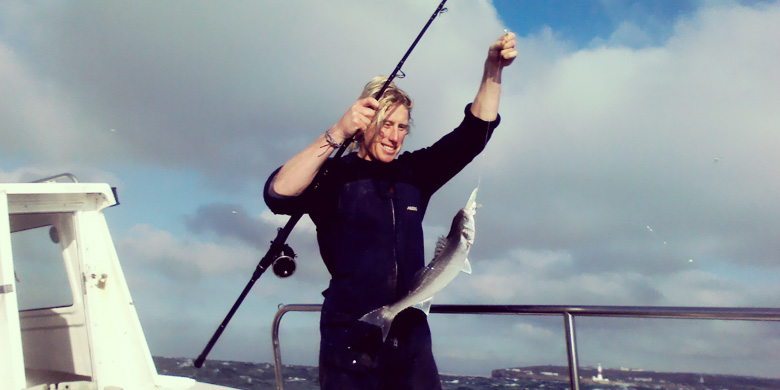
It’s a bright November morning and I’m roaring across Weymouth Bay in Dorset with a huge grin on my face. I’m about to have a masterclass with Weymouth’s top bass fisherman, Tom Lee Tarrier. We’re aboard the boat Spirit, which Tom skippers for Alan Smith, a fisherman and wholesale fishmonger in Weymouth.
“You won’t find better than Tom,” Alan tells me before we depart. “He’s the best there is.” His assertion is well justified. From this small 20-foot launch Tom provides a good living for himself and two crew members, plus a healthy profit for the boss, landing 17 tonnes of fish last year alone.
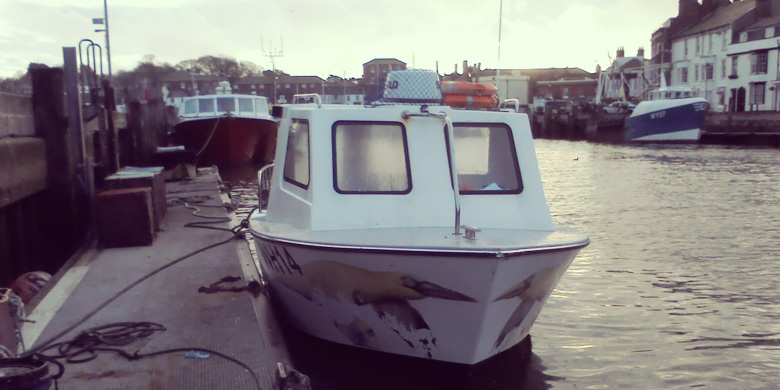
“There are loads of fish out there,” says Tom as we speed out towards the fishing grounds. “But we take a tiny amount compared to the big boys”, referring to the trawlers which can catch 30 to 40 tonnes in a single one-week trip.
This is commercial fishing at its most sustainable: fishing with rod and line, just like sport fishermen, but with the knowledge and expertise which reliably yields catches that amateur enthusiasts can only dream of.
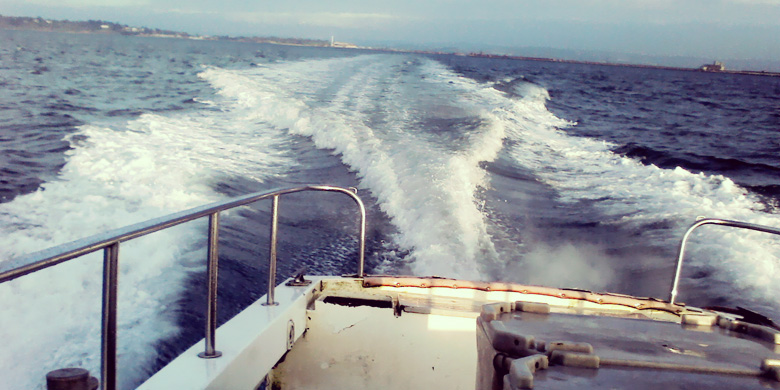
“We had 305kg of bass last Friday,” Tom tells me. An impressive haul, especially on a day when he wasn’t expecting much due to poor conditions – but it’s less than half his best day’s catch.
Tom’s life has been devoted to the sea. Early trips around Portland Harbour with his father awakened his love of fishing and by age 18 he was skippering professionally on the Weymouth fleet.
“The catch goes off to wholesalers in Poole and Brixham, mainly to supply the London restaurants, like Gordon Ramsay,” he tells me as we approach the feared Portland Race. Suddenly, he throttles back and points out to sea. “Look, gannets!” A flock of these large white-and-buff sea birds dives into the water ahead of us. “They’re chasing the sprats,” says Tom. “I wasn’t going to fish here but it’s worth a go.”
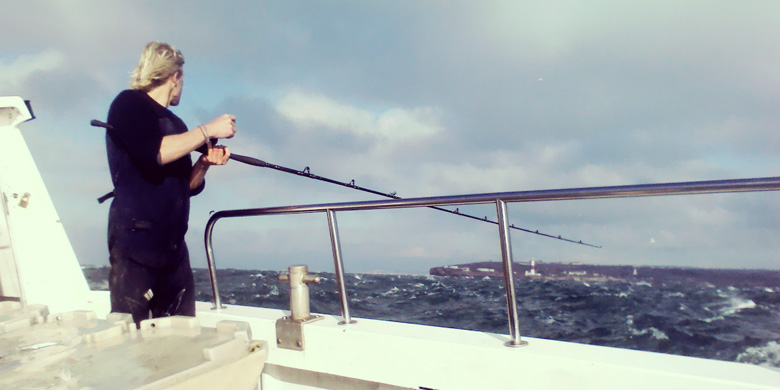
Our lines sink into the heaving water baited with “lead-heads”, jelly lures designed to mimic the prey species of the bass. Thirty seconds later, bang! bang! – we’re both into a bass each and the furious activity of reeling them in begins. I land mine in the stern of the boat and in my haste to unhook it I forget about its fearsome spines – and I’m rewarded with a number of painful puncture wounds across my right hand.
These fish are in perfect condition – silver warriors with huge mouths for taking sprats and mackerel – but they are too small for Tom. “We need to go where the bigger fish are, in the Race,” he shouts. I barely have time to make it into the cabin before he throttles up and we’re off towards that notoriously rough and dangerous stretch of water.
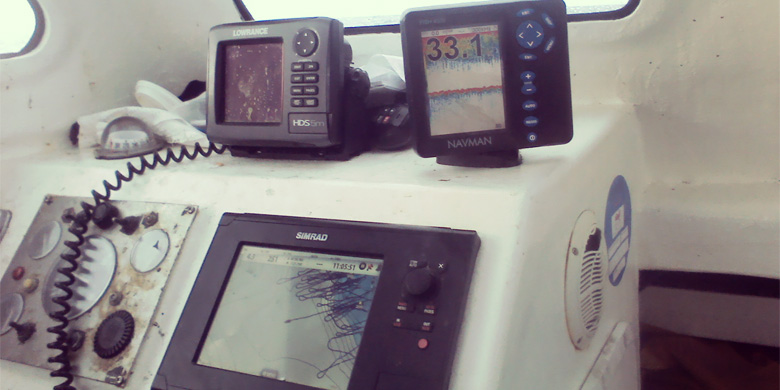
“There are certain spots where the sprats coming in from Lyme Bay get held up by the tide – that’s where the big fish are,” yells Tom over the noise of the engine. He knows these waters so well he barely needs to glance at his depth finder to gauge where he is. He throttles back and we’re on the edge of the Race, drifting into it sideways with the ebb tide flowing west.
“Let your line go to the bottom, then when we go over the drop-off, let it go,” he says. I know immediately when we do because the boat lurches violently to starboard, beginning a constant series of terrifying pitches in every direction. I cling to the guard rail, desperately trying to control my rod while Tom stands calmly, perfectly balanced despite the waves.
“Reel in, we need to go back through!” The engine roars into life again and we head back through the Race, the boat punishingly crashing down every trough. This is commercial fishing; no time to mess around. We need to land as many fish as fast as possible, so we make pass over pass through the Race. I soon begin to feel queasy and physically exhausted. Tom has two hooks to my one and on almost every pass that morning he brought up two fish to my, occasional, one.
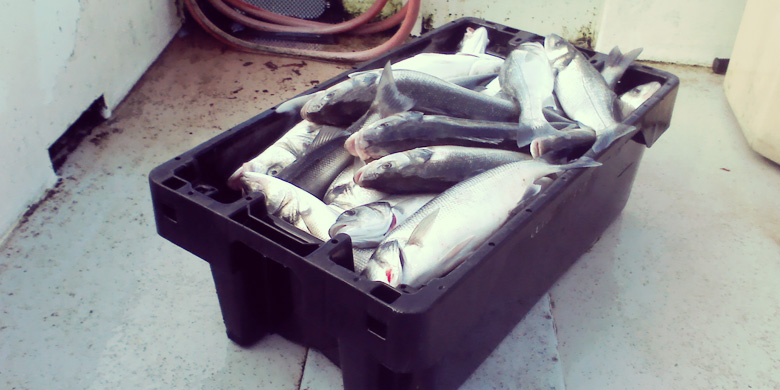
At last, as the tide reaches its lowest point at slack water, we make a pass in which even Tom catches nothing. “Right, that’s it,” he says. “They’ve gone. Time to go in.” We have been fishing in less than ideal tidal conditions yet still he has filled his box with fish. Our total catch is 50kg – of which just 15kg are mine – in 2.5 hours fishing: better than expected.
As we return, under a sky that would have inspired Turner, I glance towards our home, Portland, and think of the men, like Tom, who for generations have risked their lives daily to bring home the food that has sustained, and will continue to sustain, communities ashore. We owe them so much.
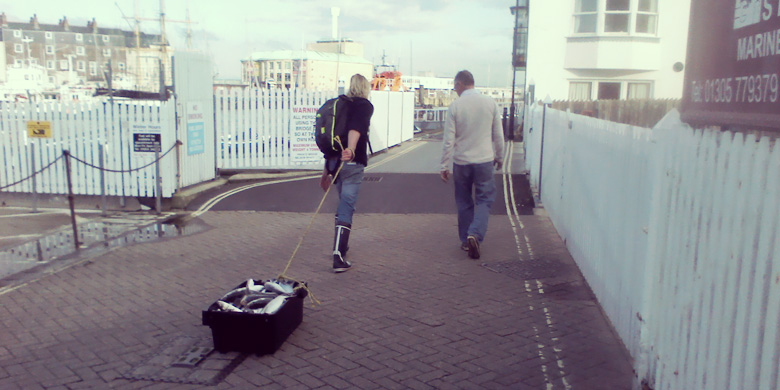
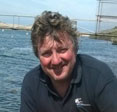
Ian Baird is a self-employed boat builder on Dorset’s Jurassic Coast. He has a workshop where he makes all kinds of nauticalia both from new and recycled materials, especially native woods. He also manages a coppice woodland in Dorset for conservation and greenwood forestry products, as well as The Galley Café Mobile Canteen with his friend, chef Keian Gillett of the Galley Café in Lyme Regis, offering fishy treats to hungry Dorset folk.





